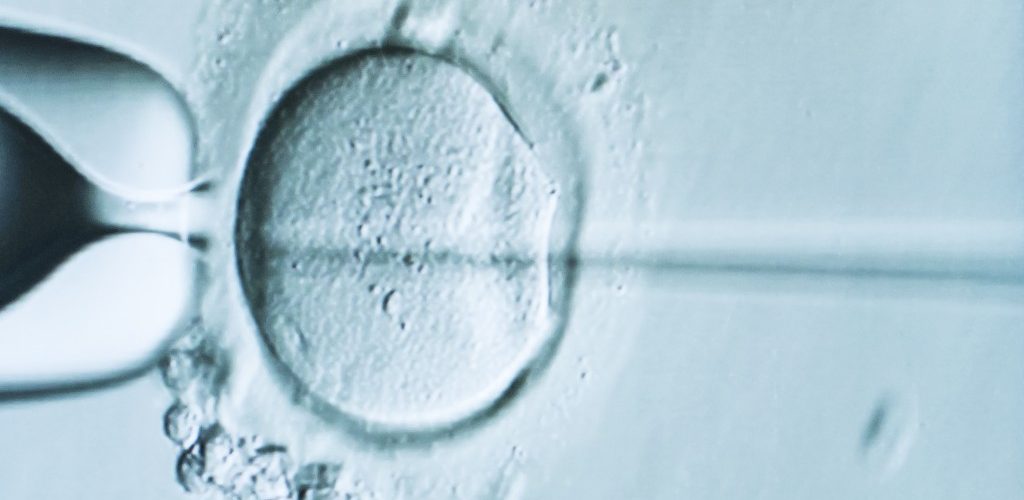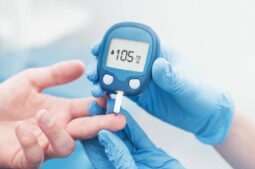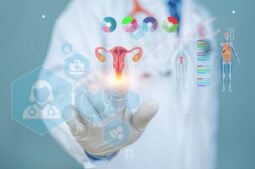

In the forty years since the in-vitro fertilisation (IVF) assisted reproduction technique was first successfully carried out, there have been many very significant developments and refinements of the method. One of the most important of these is Intracytoplasmic Sperm Injection, known as ICSI. This has enabled pregnancy to be achieved successfully in couples diagnosed with severe male factor infertility. It is one of the various methods used successfully by IVI in certain cases of male infertility. In this article we aim to answer the questions: What is ICSI infertility treatment? How is ICSI different from IVF? And what is the success rate for ICSI? We take you through the ICSI procedure step by step to dispel any mysteries surrounding this technique. As a result, anyone who has an interest or concerns about ICSI and male infertility can feel well informed about the issues and familiar with the process and what it involves.
What is male infertility?
There is growing public awareness that infertility, which used to be considered mainly a women’s issue, is in reality just as likely to affect men. In fact, the latest research shows that 35–40 % of the fertility complications that couples experience when trying for a baby are because of male infertility problems. Of these, the vast majority (90% of cases) are due to low sperm count or poor sperm quality, which can be caused by a number of factors including testicle infections, genetic abnormalities and hormone problems.
However, male infertility is complex and there are a number of other causes arising from genetic, hormonal or environmental factors. Slow sperm motility, which makes it harder for sperm to swim to the egg, and abnormal morphology, in which the abnormal shape and size of sperm makes it harder for the sperm to move and fertilise the egg, are two further common causes. In this context you may like to read our blog article which explores the need for semen analysis in the male partner of a couple experiencing fertility difficulties, and what is involved in the sperm test.
What is ICSI infertility treatment?
Put simply, ICSI involves sperm injection into eggs in order for conception to take place and for an embryo to result. The embryo is then implanted back into the patient’s uterus to develop in the normal way. ICSI is therefore a refinement of the basic IVF method, and the question is not so much how is ICSI different from IVF? But about finding out how it can be highly effective in certain cases as an element of the overall IVF process. Let’s take a closer look and analyse the ICSI procedure step by step. You may also find it helpful to watch our video about IVF and ICSI, on IVI’s YouTube channel, where you will also find what ICSI fertility treatment is.
The ICSI procedure step by step
In the context of ICSI and male infertility, it is an integral and necessary part of the IVF process. The man needs to provide a semen sample or must undergo a testicular biopsy if necessary in order to extract and select the best spermatozoa which will be used to fertilise the oocytes. These are the next steps:
- First of all, ovarian stimulation takes place. This consists of the administration of daily injections which cause the ovaries, instead of producing a single ovum which is what they do naturally each month, to produce more oocytes so that a larger number of embryos can be obtained. This treatment lasts between 10 and 20 days, depending on the protocol used and the response time of the patient. During treatment, a series of 3 or 4 ultrasound scans are carried out and the level of oestradiol in the blood is measured to check that there is normal growth and development of the follicles.
- Follicular puncture: when we have evidence through the ultrasound scans that the follicles have reached an adequate size, we administer the hormone hCG which causes the oocytes to mature in a similar way to the way they would in a natural cycle. Follicular puncture can then take place 36 hours later. This is carried out in the operating theatre under sedation so that the patient does not feel any kind of discomfort during the procedure, which lasts approximately 15 minutes.
- ICSI: this is the point when the sperm injection into eggs takes place. Once follicular puncture has been completed, and the spermatozoa with the best motility and morphology have been selected, we proceed to microinjection of the oocyte. During the process of ICSI, the selected sperm is placed in a tiny pipette and is injected directly into the ovum. In this way, fertilisation is facilitated to the greatest possible extent. The embryos obtained are allowed to develop for 3 to 5 days in the laboratory. Selected embryos are then transferred into the patient’s uterus, in a quick and painless procedure carried out with the help of a specially designed cannula.
- In summary, to answer the question of how is ICSI different from IVF? This step-by step explanation demonstrates that rather than being different, ICSI is a specialised part of the IVF process itself.
How can ICSI help with male factor infertility?
The ICSI procedure is recommended as part of an assisted reproduction treatment for male factor infertility in circumstances including:
- Low sperm count, sperm motility problems or poor sperm morphology,
- Men who have had a vasectomy,
- Infectious diseases or infertility caused by immune factors,
- Difficulty ejaculating normally, such as retrograde ejaculation,
- Cases of cryopreserved samples from men who have had a vasectomy or have had chemotherapy or radiotherapy. These samples are very valuable as there is a limited quantity and ICSI allows their use to be optimised,
- Other factors: repeated failure following several cycles of IVF, where an insufficient number of oocytes have been obtained from follicular puncture, or where it is necessary to identify healthy embryos, for example in the case of pre-implantation genetic diagnosis (PGT).
What is the success rate for ICSI?
ICSI is the most common and successful treatment option for male infertility. ICSI itself is very successful at helping the sperm to fertilise the egg – which happens in around 90% of cases. However, as in IVF there are still many other factors that influence the outcome, including the age of the female patient and whether she has any fertility difficulties herself. Therefore as with all complex questions, the success rate for ICSI depends on a number of factors which can only be assessed on an individual basis and through a careful consideration of each individual case history and the patient’s circumstances.
Rather than making predictions on an individual basis, we can say that at IVI, our proud overall record is that 9 out of 10 couples that consult us due to problems with infertility reach their goal of becoming parents. Proof of this can be seen in the more than 160,000 babies born to date with the help of IVI. Overall, our audited clinical results show that for IVF, including cases where ICSI has been recommended, clinical pregnancy results at the first attempt in 54.2% of cases, rising to 87.08% at the third attempt. If you would like to see our audited results for yourself, you can download the statistics from our website. Naturally, you can also check our website for the most accurate and up-to-date information on our treatments and how they are carried out. This includes an explanation of what you can expect on your first visit to an IVI clinic.
Further questions about ICSI and male infertility?
If you have any concerns about male infertility and the possibility of assisted reproduction treatment with ICSI, or any other issue to do with fertility, do contact us at IVI when you feel ready. We have 70 clinics in 11 countries and many of our clinics in Spain are equipped with specialist staff mentors whose role is to accompany you, in your own language, through the whole patient journey. You will find it reassuring to know that you’re not alone and that many other people with similar issues have been helped, through an IVI clinic, to see their dream of becoming parents come true.
Getting in touch: how to contact IVI
You can get in touch with us through our online contact form and make an appointment or just request more information without any obligation. Or you could pick up the phone and give us a call on 08 000 850 035 if calling from the UK or on +34 960 451 185 if calling from other countries. Our professional advisers will be pleased to hear from you and happy to answer any questions.




Comments are closed here.